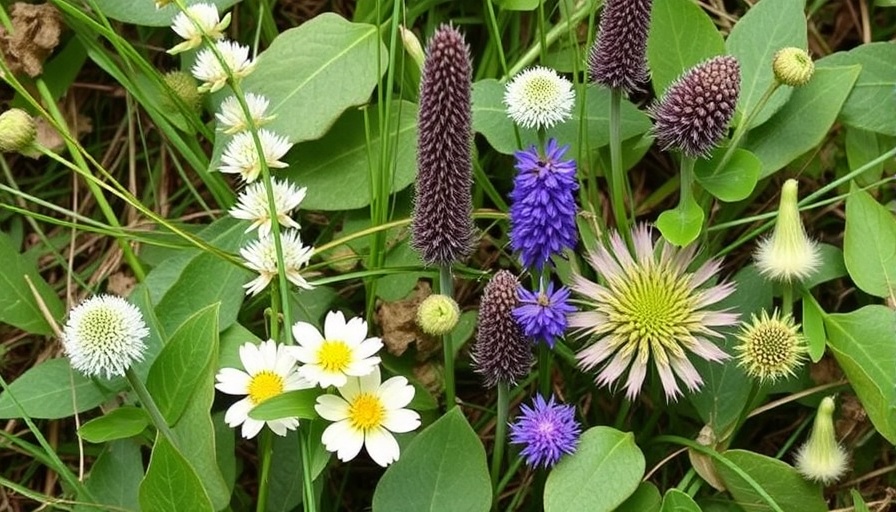
The Surprising Benefits of Eating a Variety of Wild Plants
In today’s fast-paced world, where convenience often trumps quality, many of us struggle to incorporate diversity into our diets. Mo Wilde highlights the staggering reality that half of the world's calorie intake comes from just three crops: wheat, corn, and rice. The health consequences of such limited variety can be significant, leading to deficiencies in essential nutrients crucial for maintaining our health.
Foraging: A Return to Our Roots
Embracing the age-old practice of foraging can provide us with the diverse nutrients our bodies crave. Imagine living off the land, consuming locally sourced, wild foods that contain numerous health benefits. In her letter, Wilde recalls her year of foraging in Scotland, sampling 300 different plant species, including 21 types of seaweed and 87 varieties of mushrooms. Such variety not only satisfies the palate but also offers a more robust mix of vitamins, minerals, and antioxidants.
Modern Diets and Health Implications
As processing has become a staple of our food systems, the nutrients contained in whole foods have taken a backseat. Processed foods are often stripped of essential micronutrients. Conversely, raw, wild foods are packed with these vital compounds, helping combat inflammation, boost our immune systems, and reduce the risk of chronic diseases.
The Wildbiome Project: Data-Driven Insights
The recent findings from the Wildbiome Project serve as a crucial reminder of the importance of consuming a diverse array of plants. This initiative monitored the health metrics of 120 participants who opted for a wild-food-only diet over one to three months. The results, which will be published soon, suggest significant health improvements in areas previously thought unrelated to diet, including digestion and mental clarity. Such discoveries underline the importance of embracing a holistic approach to nutrition.
Connecting with Nature: Why It Matters
The decline in plant identification and the knowledge surrounding our natural environments directly correlates to our disconnection from the natural world. This gap can lead to a lack of awareness regarding diminishing species of plants and animals and their vital roles in our ecosystem. More importantly, understanding this connection can enhance our overall health; by cultivating a closer relationship with nature, we create a foundation for better lifestyle choices.
Actionable Tips for Embracing Wild Foods
Incorporating wild plants into your diet can be an adventure. Here are a few tips to get started:
- Research Local Foraging Options: Identify safe plants in your area. Many resources are available, including local foraging classes and guides.
- Start Small: Explore one or two new wild plants each week. Keep track of your experiences and any recipes you create.
- Join a Community: Connecting with fellow foragers can enrich your experience and provide support and knowledge.
- Embrace Seasonal Foods: Focus on plants that are in season. This not only sustains health but also fosters a deeper connection to the cycles of nature.
The Path Forward: Embracing a Holistic Diet
Eating a diverse array of plants, especially wild varieties, can play a major role in achieving holistic wellness. By making conscious dietary choices that include nutrient-rich, natural foods, we can support our overall health. As you consider your own diet, ask yourself: how many different plants have you eaten this week? Perhaps it is time to explore your own backyard for vibrant opportunities.
Your Next Steps Towards Healthier Living
It’s time to rethink our approach to food. As we venture forth into a lifestyle that honors diversity in our diet, not only do we nourish our bodies, but we also engage with the environment around us. So, take the first step: explore the wild, and bring a little bit of nature back into your meals!
 Add Element
Add Element  Add Row
Add Row 



Write A Comment